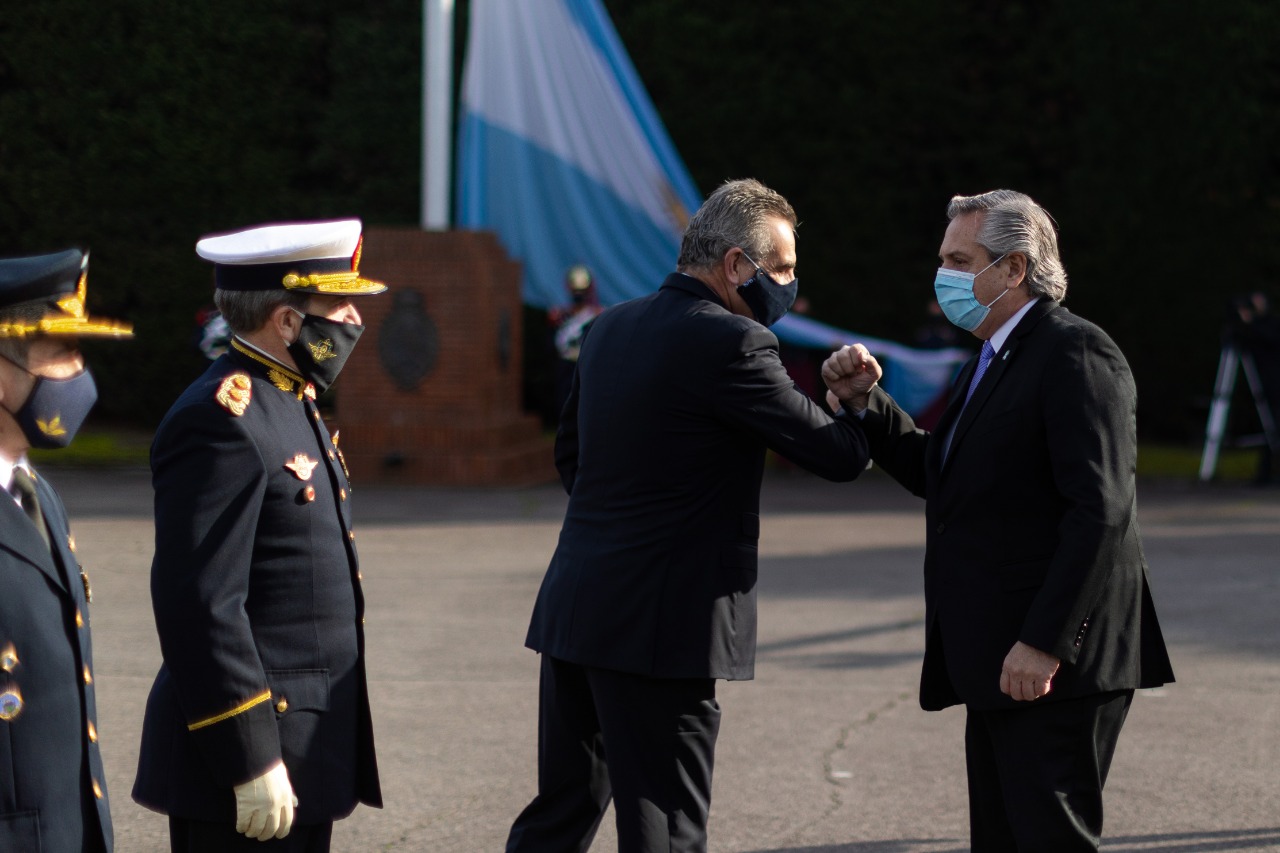RIO DE JANEIRO, BRAZIL – The Argentine government has reversed military reforms from ex-President Mauricio Macri‘s administration. On June 26th, President Alberto Fernández, his head of cabinet Santiago Cafiero, and Defense Minister Agustín Rossi signed a decree that repeals two decrees issued by the former government in 2018. As a result, provisions issued in 2006 by the Néstor Kirchner government, which were primarily defensive in nature, will once again become effective.

With Decrees 683/2018 and 703/2018, Macri and his Secretary of Defense Oscar Aguad intended a strategic realignment of the armed forces. On the one hand, this meant a shift in military doctrine from the scenario of a threat from foreign state powers and a focus on non-state threats such as terrorism and drug trafficking. In parallel, the powers of the military were extended to include internal security tasks. In particular, logistical support for the security forces in areas close to borders should be stepped up.
Following the repeal of the Macri Decrees, the Ministry of Defense now has a deadline of six months to submit proposals for a new national defense directive. According to the presidential decree, “the fundamental difference that separates national defense policy from internal security must be considered”.
In a statement to the news daily Pagina 12, the dean of the University of National Defense, Jorge Battaglino, considers this step to be positive. Argentina has achieved a demilitarization of politics and society unparalleled in the region. But the decrees of the Macri government have represented a step backwards in this respect. The police and internal security forces require a different education, training, organization, and equipment than military forces and conversely.
Battaglino also refers to the efforts undertaken in the non-military sector in the fight against terrorism and drug-related crime. In addition to the federal and provincial police units, three other special units – the Federal Police, the Marine Corps, and the Air Safety Police – are dedicated to fighting these phenomena.
According to the United Nations Office on Drugs and Crime, Argentina is the country with the highest density of security forces on the continent.
Paula Giménez and Emilia Trabucco of the Latin American Center for Strategic Analysis, in turn, emphasize that the decrees that have now been repealed are based on the “preventive war” doctrine pursued by the United States after 2001. In this context, Macri and the then US President Barack Obama signed agreements on joint operations in the border area with Brazil and Paraguay, closer cooperation in the area of intelligence and nuclear research, and future military missions abroad.
Further agreements of military relevance with the Donald Trump administration followed in 2017. The Argentinean armed forces would have been assigned the role of a support force for the major Western powers.
As expected, criticism of the decrees’ repeal has been voiced by the opposition. Carlos Fernández, deputy for the Cambiemos Party and chairman of the National Defense Committee, said: “The decision sets us back 14 years, specifically with regard to the concept of external attack by a foreign state power.”
The decision was also criticized for being taken at a time when the military is providing aid to the security forces in the course of the coronavirus measures.
Meanwhile, it became public knowledge that the US Congress had approved a supply of weapons and military equipment worth US$100 million (R$500 million) to Argentina. The Macri government had submitted a motion to that effect.
The Argentine Ministry of Defense is claiming that the order has now been put on hold for the time being. So far, no relevant document from the former government has emerged to justify the interest in this military equipment.
The 1988 National Defense Law, which is still in force, stipulates the separation of defense policy and domestic security policy in Argentina. This is a direct consequence of the experiences of the military dictatorship (1976-1983), in the course of which 30,000 opponents of the regime were made to “disappear” on the pretext of the persecution of an “internal enemy”.

